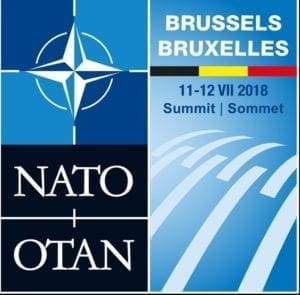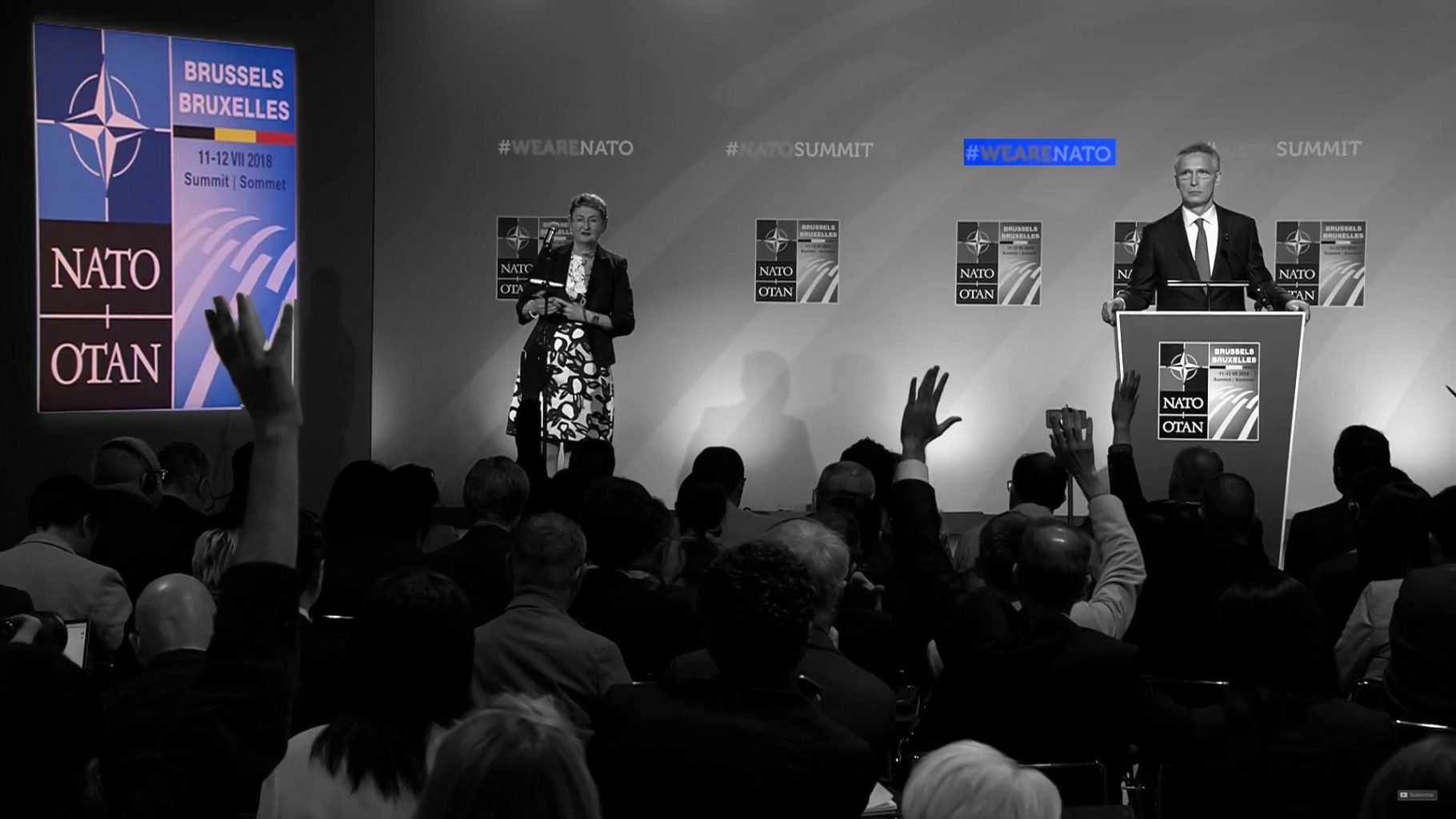 In the midst of Cold War 2.0, Brussels will host NATO Heads of State and/or Government who will convene this week on 11-12 July 2018 for the 28th NATO Summit normally held biennially. Leaders from Finland, Sweden, Ukraine, Georgia and RSM partner nations will also be among the participants. The President of the European Council, Donald Tusk, the President of the European Commission, Jean-Claude Juncker, and High Representative Federica Mogherini will represent the EU at the NATO summit. It will be the third meeting of Allied Heads of State and Government chaired by NATO Secretary General Jens Stoltenberg.
In the midst of Cold War 2.0, Brussels will host NATO Heads of State and/or Government who will convene this week on 11-12 July 2018 for the 28th NATO Summit normally held biennially. Leaders from Finland, Sweden, Ukraine, Georgia and RSM partner nations will also be among the participants. The President of the European Council, Donald Tusk, the President of the European Commission, Jean-Claude Juncker, and High Representative Federica Mogherini will represent the EU at the NATO summit. It will be the third meeting of Allied Heads of State and Government chaired by NATO Secretary General Jens Stoltenberg.
The summit attracts outstanding media attention. Although the U.S. president Donald Trump dominates the news with the bullying language – verbal and written – that he chooses to use against NATO Allies because of the shortfalls on Defence Investment Pledge, there are some other important topics that deserve coverage. As has been the case in all the high profile NATO events, all topics in NATO Summit are pre-cooked. In this summit, decisions are expected to be taken on five main topics;
- Strengthening Deterrence and Defence: ‘Collective Defence’ or ‘la raison d’être’ of NATO took precedence over other efforts in recent years. Much has been accomplished for re-energizing NATO after Russian aggression against Ukraine. With Wales and Warsaw Summits, big parts were put in place such as Readiness Action Plan, Defence Investment Pledge and Strengthened Deterrence and Defence Posture (via eFP and reinforced NRF/VJTF). Now it is time to achieve ‘overall coherence’ and to close ‘residual gaps’. Towards this goal, the NATO Readiness Initiative the ‘Four Thirties – to ensure that by 2020, we have 30 mechanised battalions, 30 air squadrons and 30 combat vessels, ready within 30 days or less’ as formalised at the latest DEFMIN is expected to be agreed upon at the Summit.
- Projecting Stability and Fighting Terrorism: Turmoil created by ISIS in the MENA region had consequences for almost all of the Allies. The Alliance took some measures including becoming a member of the Global Coalition to Defeat ISIS to counter this threat. Nowadays, fighting terrorism is more popular than ever in NATO. Iraq will be the second front of this fight after Afghanistan. Alongside RSM, NATO is expected to launch a new training mission in Iraq, to help Iraqi forces prevent the re-emergence of ISIS or other terrorist groups. This non-combat mission will include building military academies and schools. Additional support to key partners in the MENA region is planned to be provided by NATO; to Tunisia on Counter-Terrorism and C-IED, to Jordan on cyber defence, C-IED and Crisis Management. The NSD-S Hub, is also expected to be fully operational by the Summit.
- Stronger Cooperation with the EU: Despite populist discourse on both sides, cooperation between NATO and EU has improved, particularly after 2016 and has a potential to further improve as long as the role of the EU in defence and security domain remains ‘coherent and complementary’. Promising areas of cooperation are; military mobility, counter-terrorism, strengthening resilience to chemical, biological, radiological and nuclear-related risks, promoting the women peace and security agenda. Today (10 July 2018) the President of the European Council, Donald Tusk, the President of the European Commission, Jean-Claude Juncker, and the Secretary-General of the North Atlantic Treaty Organisation, Jens Stoltenberg, signed a Joint Declaration on EU-NATO cooperation. The Joint Declaration’s language restores mutual trust and confidence between two organizations.
- Modernising NATO: At the Brussels Summit, Allies will agree on a significant update of the NATO Command Structure, including two new commands, the Joint Support and Enabling Command (JSEC) in Ulm/Germany and the Joint Force Command for the Atlantic in Norfolk/Virginia, U.S. to ensure NATO forces can move quickly across the Atlantic and within Europe. A Cyber Operations Centre will also be embedded into the new NATO Command Structure.
- Fairer Burden-Sharing: In Wales Summit, all Allies pledged to stop cuts to defence, increase spending, and move towards spending 2% of GDP on defence within a decade. Since 2014, the downward trend has been reversed. NATO has seen three consecutive years of growth in defence expenditure across European Allies and Canada and cumulative spending increase for the period from 2015 to 2018, above 2014 level is $87.6 Bn USD. Furthermore, Allies will spend extra $ 266 bn from now till 2024 to their defences. And in 2018, 8 Allies (U.S., UK, Greece, Romania, Poland, Lithuania, Estonia and Latvia) either keep or will be able to increase their defence spending above 2% guideline. Although the Secretary-General tries to alleviate the debate by bringing the above-expressed facts about increased defence spending on the table, letters sent by U.S. administration to Norway, Belgium and UK seems exacerbated the situation. President Trump’s latest tweets linking trade with defence are harbingers of interesting discussions. Especially Germany’s attitude to the issue will be of particular importance as an Ally that constantly being singled out by the U.S. administration concerning its low defence spending (Germany will increase its defence spending by 80% between 2014-2024 according to the NATO Secretary General).
RSM will be discussed during the Summit. Allies are expected to extend funding for the Afghan forces beyond 2020.
Items such as inviting ‘the Republic of North Macedonia’ to NATO accesion talks, possible amendments to expedite decision-making process of the Alliance to take decisions at the ‘speed of relevance’, potential for further cooperation on migration with the EU, Trump – Putin meeting that will be held immediately after the summit as part of the dual-track approach efforts against Russia, rumours about a possible withdrawal of U.S. troops from Germany, Polish offer to relocate of them to Poland constitute the unofficial agenda of the Summit. No matter what will happen during the event, the Brussels Summit Communique will be the main outcome of the two-day event, and it will shape the future of the defence and security domain of the Trans-Atlantic region.

